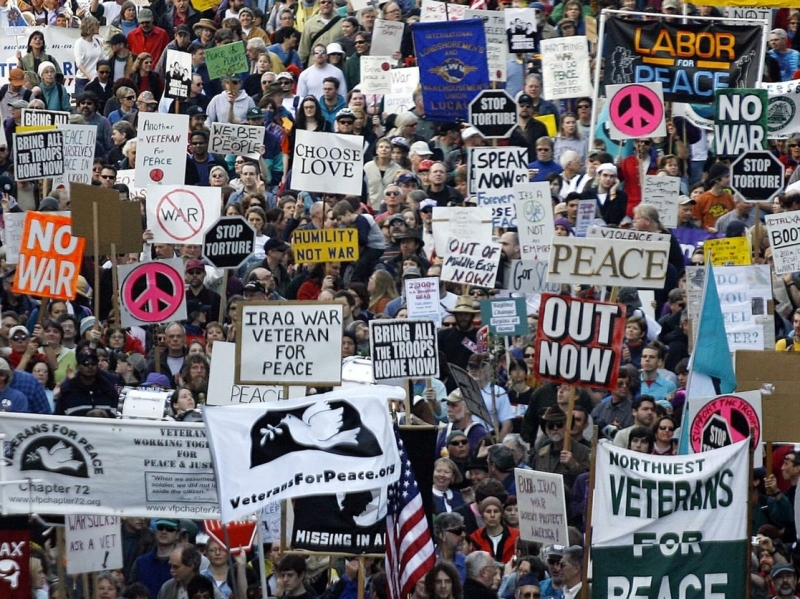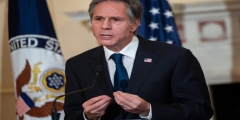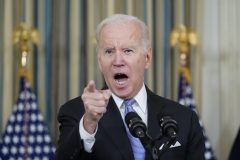After 20 years of war against Iraq, the US continues to violate international law: Chomsky
This week marks the 20th anniversary of the vote in the US Congress that authorized the war against Iraq, in which, by some estimates, between 800,000 and 1.3 million people died. In the following exclusive interview for Truthout, Noam Chomsky shares his thoughts on the causes and ramifications of this heinous crime against humanity.
Chomsky is Professor Emeritus in the Departments of Linguistics and Philosophy at the Massachusetts Institute of Technology (MIT), an award-winning Professor of Linguistics, and Chair of the Agnese Haury Program in Environmental and Social Justice at the University of Arizona. He is one of the world's most cited academics and an intellectual who is considered a national and international treasure by millions.
He has published more than 150 books on linguistics, political and social thought, political economy, media studies, US international politics, and international affairs. His most recent works are The Secrets of Words (with Andrea Moro, MIT Press, 2022); The Retreat: Iraq, Libya, Afghanistan, and the Fragility of US Power (with Vijay Prashad, The New Press 2022) and The Cliff: Neoliberalism, the Pandemic, and the Urgent Need for Social Change (with C. J. Polychroniuou, Haymarket Books 2021) .
—Noam, 20 years ago the United States Congress authorized the invasion of Iraq despite massive opposition. Several top Democratic senators voted to authorize the war, including John Biden. For historical and future purposes, what were the causes and ramifications of the war with Iraq?
-Noam Chomsky: There are different types of support ranging from direct to tacit. The latter includes those who believe it was a mistake, but nothing more serious than a "tactical blunder", as Barack Obama characterized it in retrospect. There were Nazi generals who opposed Hitler's major decisions as tactical blunders. The same thing happened with many of the Russian generals who said that the invasion of Afghanistan was a mistake.
In the dome, low opposition to the war
If we ever reach the standards we demand of others, we would recognize that there was very little principled opposition from the top, including the government and the political class, to the war against Iraq. The same thing happened in the case of the Vietnam War and other serious crimes.
There was, of course, strong popular opposition. My own experience at MIT was very characteristic. The students demanded that we suspend classes so that they could participate in huge public protests before the war was officially launched - something that was new in the history of imperialism; there were rallies in a downtown church to discuss the impending crime and what it portended.
Much of this was happening globally; so much so that Donald Rumsfeld (then Secretary of Defense) came out with his famous distinction between Old and New Europe. Old Europe was made up of traditional, old-fashioned, anachronistic democracies that we Americans could brush aside because they were engrossed in boring concepts like international law, the right to sovereignty, and other obsolete nonsense.
The New Europe, on the other hand, was made up of the good guys: some former Russian satellites being towed to Washington. There was a Western democracy, Spain, where President (José María) Aznar followed Washington and ignored 100 percent of public opinion in his country. His reward was being invited to accompany (US President George W. Bush) and (British Prime Minister Tony) Blair when they announced the invasion.
It would be interesting to see if Bush and Blair are interviewed on this auspicious occasion. Bush was interviewed on the 20th anniversary of his invasion of Afghanistan, another act of criminal aggression, which was overwhelmingly rejected by international public opinion, contrary to what many claimed, as discussed above.
He was interviewed by The Washington Post, in the Style section, where he was shown as a lovable and slightly goofy grandfather, hanging out with his grandchildren and showing off the portraits he has painted of the famous people he met.
“The only question”
There was an official reason for the US-British invasion of Iraq. "The only question," as it was called at the top: Is Iraq willing to destroy its nuclear weapons production programs?
International inspectors questioned whether such programs existed and asked for more time to investigate, but were ignored. The United States and its lackey, the United Kingdom, were out for blood. A few months later, the "only question" got the wrong answer. Let's remember that funny performance that Bush did, looking under the table and saying: "No, they're not there... maybe in the closet", etc. Hilarious. He caused laughter… but not on the streets of Baghdad.
The wrong answer required a change of course. Suddenly it was discovered that the reason for the invasion was not "the only question", but our fervent desire to bring the blessings of democracy to Iraq.
There was some support in Iraq. A Gallup poll found that some Iraqis were on board too: 1 percent thought the invasion's goal was to bring democracy to Iraq, 5 percent believed it was an attempt to "help the Iraqi people." The rest claimed that the US goal was to take control of Iraqi resources and reorganize the Middle East region in accordance with US and Israeli interests.
Bush demands the obvious
By November 2007, when the United States sought a status-of-forces agreement, the Bush administration came clean and admitted the obvious: it demanded privileged access for Western energy companies to Iraqi fossil fuel deposits and the right to establish bases US military in the territory of the invaded nation. The demands were endorsed by Bush in a statement the following January, which was rejected by the Iraqi parliament.
The ramifications of the invasion were multiple. Iraq has been devastated. What was in many ways the most advanced country in the Arab world is a miserable wreck. The invasion incited ethnic conflict between Shiites and Sunnis, which did not exist before, and which has not only torn the country apart but the entire region. The Islamic State (IS) emerged from these ruins to almost take control of all of Iraq when the army, armed and trained by the United States, fled at the sight of jihadists brandishing rifles, aboard trucks. Security forces backed by Iranian militias were barely able to prevent them from taking Baghdad… and so on.
But none of this is a problem for the lovable, goofy grandpa, or America's educated classes who admire him as a serious statesman and hire him to lecture on international issues.
—In 2003 the invasion of Iraq was as criminal an act as Russia's invasion of Ukraine, but the reaction from the Western community was very different. Nobody imposed sanctions against the United States or froze the assets of its oligarchs, or demanded that it be suspended from the United Nations Security Council. What can you tell us about it?
“No comment really needed. The worst crime since World War II was America's protracted war against Indochina. No censorship against the United States was contemplated. Within the United Nations it was understood that if they even dared to discuss these horrendous crimes, Washington would simply dismantle the institution for offending it. The West rightly condemns Putin's annexations and calls for the punishment of this reincarnation of Hitler, but it does not dare to utter the most timid protest when the United States authorizes Israel to illegally annex the Golan Plateau, nor does it say anything to Morocco for appropriating Western Sahara. The list is long. The reasons are clear.
international impunity
When the operating rules of the world order are violated, the reaction is swift. This is clearly illustrated when the International Court convicted the Holy State (United States) of international terrorism (with the legal term “unlawful use of force”) in 1986 and ordered it to stop its crimes and pay a substantial sum in reparations to the victim (Nicaragua). Washington responded by increasing crimes. The press downplayed the trial as invalid because the court was a "hostile forum" (according to the New York Times) and used the ruling against the United States as proof of this.
This entire episode has been erased, for all intents and purposes, from history, including the fact that the United States is the only state that has rejected a decision by the International Court, with total impunity, of course.
Today, the United States does not even try to hide its contempt for international law; except when he can use it as a weapon against his enemies. It is then that he reformulates it as "the international order based on rules", to replace the archaic international order based on the UN, the same one that obstructs US international policy.
Q: What would have happened if Congress had refused to endorse the Bush administration's plan to invade Iraq?
—A Republican voted against the resolution on the war (Lincoln D. Chafee). Democrats were split (29 to 21). If Congress had refused to go along with it, the Bush administration would have had to find other means to achieve the goals that Cheney-Rumsfeld-Wolfowitz and other hawks had made clear.
Recall that the two distinguished international diplomats, who later managed Clinton's (sanctions) program (through the UN), resigned in protest and condemned his "genocidal" intent.
One of them, Hans von Sponeck, wrote an extremely illuminating book, A Different Kind of War, in which he minutely details each impact. There was no need to censor what is probably the most important part of the book about how the criminal invasion was built and how the US uses the weapon of sanctions in general: quiet compliance was enough.
It is good to remember that there is no limit to cynicism if conformity and obedience prevail.

Comments to this:








